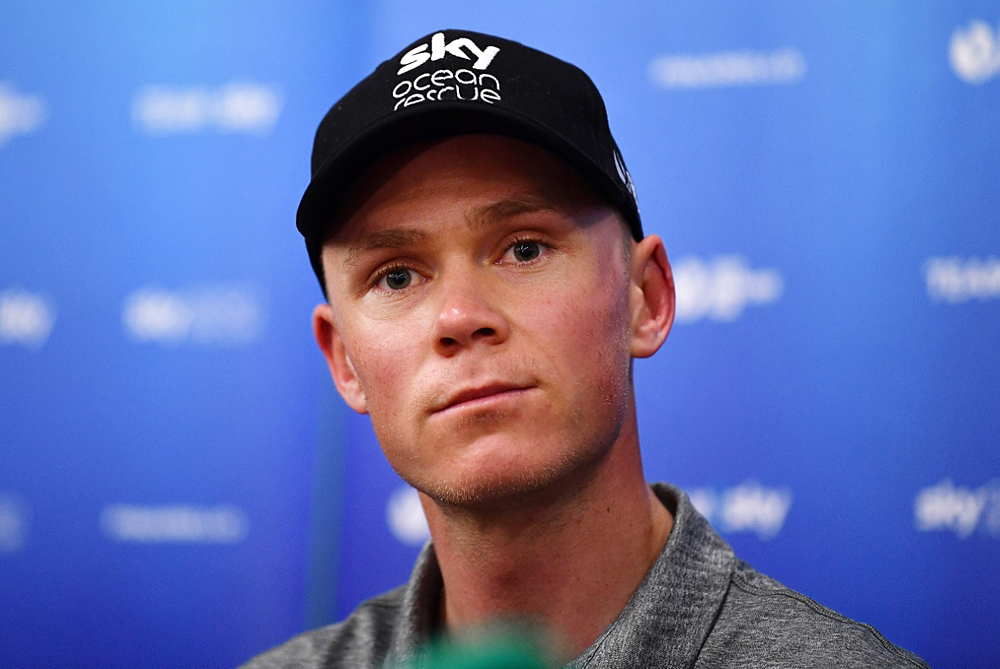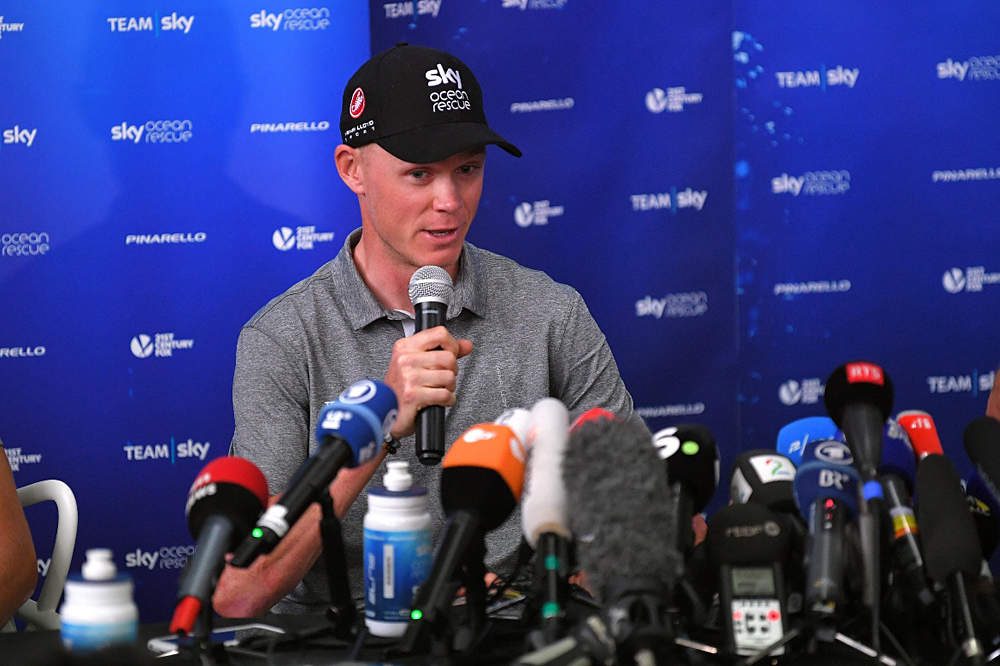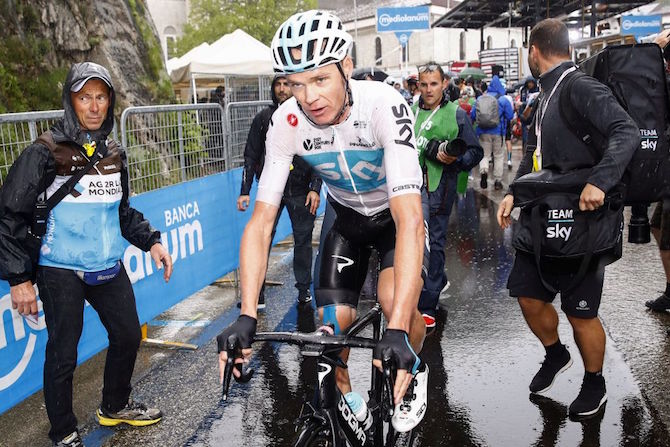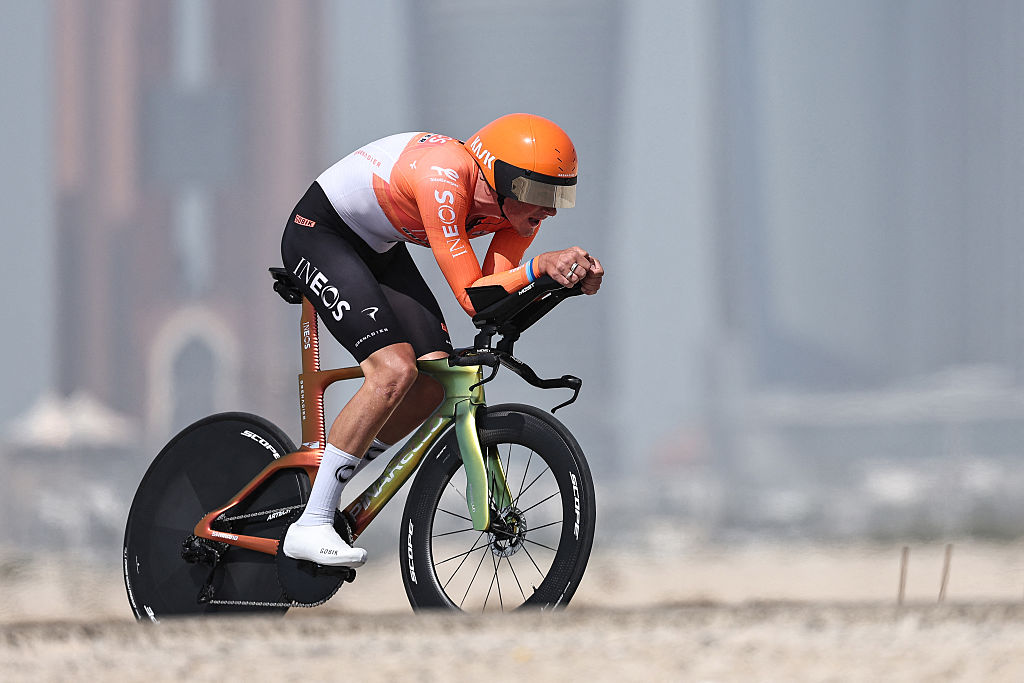Chris Froome and WADA need to be more transparent, says former ASADA head
Ings calls on WADA and UCI to publish all documents from Sky rider's salbutamol case
The latest race content, interviews, features, reviews and expert buying guides, direct to your inbox!
You are now subscribed
Your newsletter sign-up was successful



The former CEO of the Australian Sports Anti-Doping Authority (ASADA) has called on Chris Froome, WADA and the UCI to publish all their documents, and in Froome's case all the evidence submitted on his behalf in his salbutamol case, in order to add clarity and transparency to the matter.
Froome was notified of an adverse analytical finding (AAF) after one of his samples from the 2017 Vuelta a España was found to contain a concentration of salbutamol in excess of 1000ng/ml. Even after an adjustment for margin of error and a subsequent correction for dehydration that was retrospectively applied, he was 20 per cent over the threshold, but WADA cleared the rider of an anti-doping rule violation (ADRV). He is now set to compete in the Tour de France, where he is looking for his fifth title.
"This is a very interesting case because it's not an AAF but an unusual reading that triggers further investigation," Richard Ings told Cyclingnews in a phone interview.
"This particular cyclist is very fortunate. He has the resources, the medical and scientific expertise to put forward his case and provide an explanation. In the absence of full transparency from WADA – and we've not seen a reasoned decision – we can only deduce that the evidence produced showed that the automatic trigger level for salbutamol can be exceeded through a therapeutic dose."
In his comments after being cleared, Froome tried to deemphasise the rarity of being cleared of an ADRV in this way.
WADA will not appeal UCI verdict on Chris Froome salbutamol case
WADA deny giving Chris Froome a legal loophole by avoiding pharmacokinetic study
Chris Froome dodged a bullet, says former WADA head Pound
Vincenzo Nibali calls Froome's salbutamol verdict 'a case of double standards'
Chris Froome hostility heightens Tour de France security concerns
"There are a lot of athletes who have been through this process and been cleared of wrongdoing without the cases being made public," Froome said.
"People need to remember that. They are comparing mine to two or three others who received suspensions, but have failed to mention – because they aren't public – all the other cyclists and other athletes who have been through a similar process and been cleared. Quite a few reached out to me, shared their information and explained what they have been through. That gave me some hope."
WADA scientific director Olivier Rabin told Cyclingnews that the agency handles 10-20 salbutamol cases per year. When we asked WADA how many salbutamol cases ended with no sanction, a WADA spokesperson told Cyclingnews that from 2013 to 2017 only eight athletes were cleared across all sports.
Ings called on the authorities to justify their decisions with a full release of the data that led to their conclusion that Froome did not violate the rules.
"It's incumbent on the UCI and WADA to share with the world how that science works. The reason they should do that is for full transparency but also because there have been other athletes who have had readings above the legal limit that didn't have the legal and scientific muscle to be able to put forward a compelling case," Ings said. "What happens with those cases? These athletes were suspended, some for months and some for longer."
Froome was cleared by WADA, but the tension around the situation and the rider has reached new levels. On Thursday he was roundly booed by the French public at the pre-Tour teams presentation. This led Froome to pen an open letter in French newspaper Le Monde and on Team Sky's site in which he called for calm, and reiterated his desire for WADA to release the medical research that cleared him. So far information has been scarce, while Team Sky have looked to ease tension with a number of gestures, including Dave Brailsford speaking in French during Team Sky's pre-race press conference, and Froome himself appealing for the public to get onside ahead of the Tour.
There is little doubt that this case has polarised opinion but Ings, who was the CEO at ASADA from 2005 to 2010, believes that every party could do more to help the situation.
"When science is proved to have exceptions, then those need to be provided to all athletes. WADA need to disclose the information on what it means to be over the limit but be shown to have only used a therapeutic dose. We've seen the decision at a top-line level, but there's no documentation behind the decision. Given this is a multi-time winner of the Tour and the event is about to kick off, I think we as a public deserve to see it. There should be no reason why the information can't be released if there's permission from the cyclist," he said.
"It's also on Team Sky to put forward their full evidence. They've always held themselves up as setting the standard in terms of anti-doping and transparency. Now we've seen with various points in the past that there was a lot of talk and not much action, but there's nothing to limit the release of any information, if authorised by the cyclist to do so. There's been a lot of back and forth, but, at the end of the day, it's up to the athlete. I encourage him to give the authority to the UCI and to WADA to release 100 per cent of the documentation for transparency, and the ultimate reassurance for a very wary public."
The latest race content, interviews, features, reviews and expert buying guides, direct to your inbox!
Daniel Benson was the Editor in Chief at Cyclingnews.com between 2008 and 2022. Based in the UK, he joined the Cyclingnews team in 2008 as the site's first UK-based Managing Editor. In that time, he reported on over a dozen editions of the Tour de France, several World Championships, the Tour Down Under, Spring Classics, and the London 2012 Olympic Games. With the help of the excellent editorial team, he ran the coverage on Cyclingnews and has interviewed leading figures in the sport including UCI Presidents and Tour de France winners.

